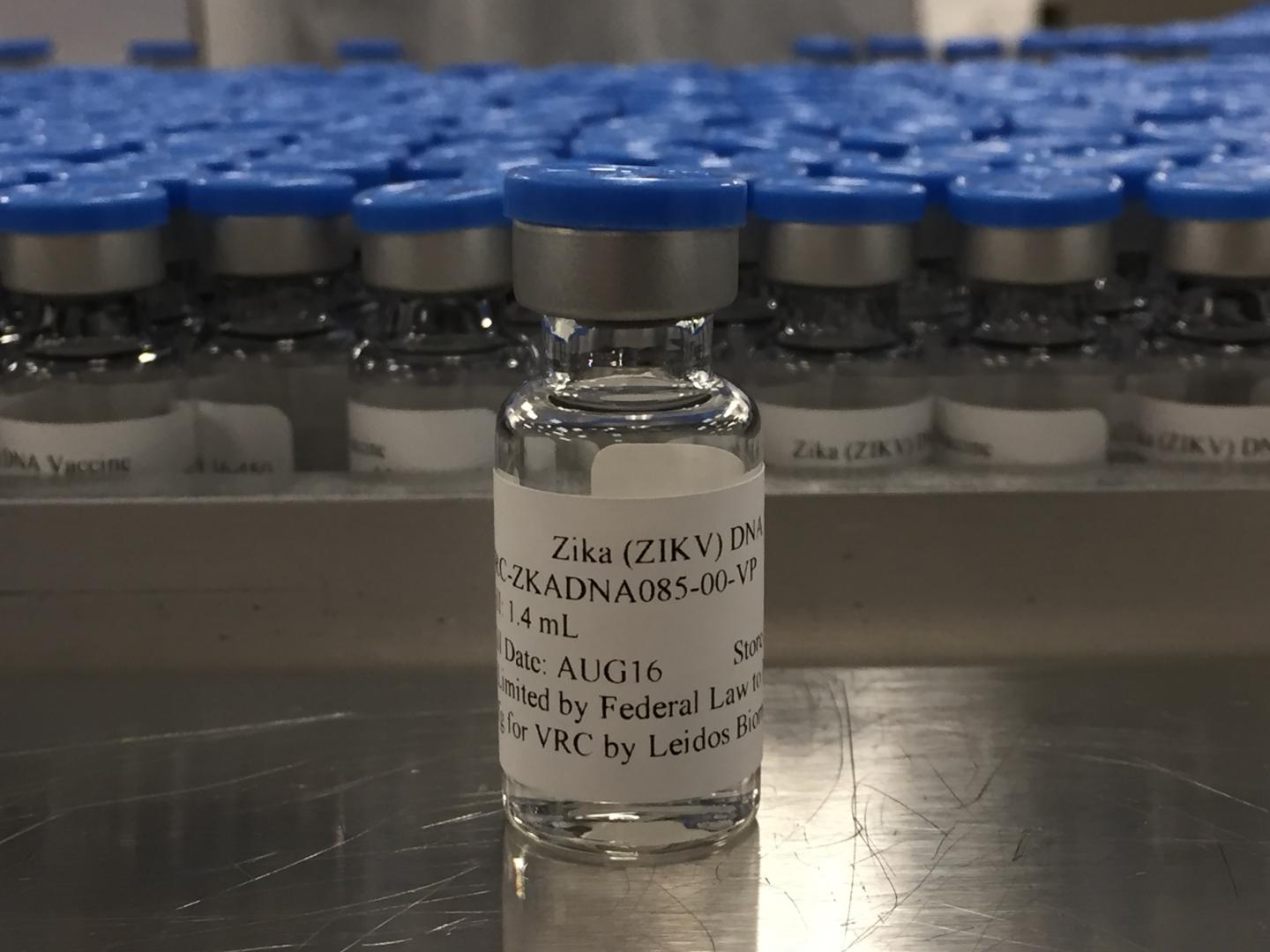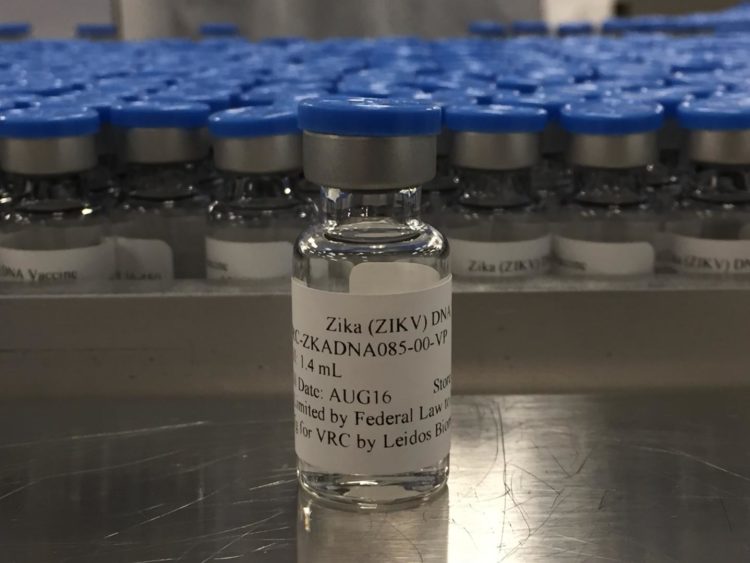
Credit: NIAID
WHAT:
An experimental Zika vaccine lowered levels of virus in pregnant monkeys and improved fetal outcomes in a rhesus macaque model of congenital Zika virus infection, according to a new study in Science Translational Medicine. The research was conducted by scientists at the National Institute of Allergy and Infectious Diseases (NIAID), part of the National Institutes of Health, and their collaborators from the University of California, Davis; Duke University; and the University of California, Los Angeles. NIAID scientists developed the experimental vaccine and currently are evaluating it in a Phase 2 human clinical trial. The vaccine uses a small circular piece of DNA, or plasmid, containing genes that encode Zika virus surface proteins to induce an immune response.
Zika virus is primarily transmitted to humans by Aedes mosquitoes; it also can be transmitted through sex. The virus can cause serious birth defects in babies born to mothers who become infected during pregnancy. Ideally, the authors note, a Zika vaccine would be given to adolescents and adults of childbearing age before pregnancy to prevent congenital Zika syndrome.
Large outbreaks of Zika virus in the Americas in 2015 and 2016 led to thousands of cases of congenital Zika syndrome, prompting NIAID scientists to quickly develop and begin clinical trials of the NIAID DNA Zika vaccine. While clinical trials can yield data on safety and how the vaccine performs in recipients, due to the diminished incidence of Zika, conducting a clinical trial that would determine the vaccine’s ability to prevent adverse fetal outcomes has been logistically difficult. Therefore, researchers developed a macaque model of congenital Zika syndrome to provide another way to evaluate the experimental vaccine.
Their study compared outcomes in 12 unvaccinated pregnant macaques and 13 macaques vaccinated before pregnancy. All macaques were exposed to Zika virus a total of three times during the first and second trimesters. Vaccinated animals had a significant reduction in the amount of Zika virus in the blood and in the length of time virus was detectable compared to unvaccinated animals. The vaccinated group was significantly less likely to transmit Zika virus to the fetus, whereas persistent Zika virus infection in unvaccinated macaques was associated with fetal infection. No cases of early fetal loss occurred in the vaccinated group, which also had no evidence of damage to either the placenta or the fetal brain.
The study suggests that sterilizing immunity–an immune response that prevents infection entirely, with no detectable virus–may not be required for significant protection against congenital Zika syndrome, according to the authors. They note that the ability of a vaccine to prevent persistent Zika virus infection may be an important consideration for future clinical research. Meanwhile, the animal model can be used to learn more about Zika virus transmission from mother to fetus and possible intervention strategies.
###
ARTICLE: KV Rompay et al. DNA vaccination before conception protects Zika virus-exposed pregnant macaques against prolonged viremia and improves fetal outcomes. Science Translational Medicine DOI: 10.1126/scitranslmed.aay2736 (2019).
WHO:
NIAID Director Anthony S. Fauci, M.D., is available to comment. Paper authors Barney S. Graham, M.D., Ph.D., deputy director of NIAID’s Vaccine Research Center, and Theodore C. Pierson, Ph.D., chief of NIAID’s Laboratory of Viral Diseases, are also available.
CONTACT:
To schedule an interview, please contact the NIAID Office of Communications and Government Relations: (301) 402-1663, [email protected].
This research was funded by the NIAID Intramural Research Program and by the following NIH grants: R21AI129479-S, P510D11107, R21NS104692, R21HD090856, R01HD098389 and T32 CA009111.
NIAID conducts and supports research–at NIH, throughout the United States, and worldwide–to study the causes of infectious and immune-mediated diseases, and to develop better means of preventing, diagnosing and treating these illnesses. News releases, fact sheets and other NIAID-related materials are available on the NIAID website at http://www.
About the National Institutes of Health (NIH): NIH, the nation’s medical research agency, includes 27 Institutes and Centers and is a component of the U.S. Department of Health and Human Services. NIH is the primary federal agency conducting and supporting basic, clinical, and translational medical research, and is investigating the causes, treatments, and cures for both common and rare diseases. For more information about NIH and its programs, visit http://www.
NIH…Turning Discovery Into Health ®
Media Contact
NIAID Office of Communications
[email protected]
301-402-1663
Original Source
https:/
Related Journal Article
http://dx.





